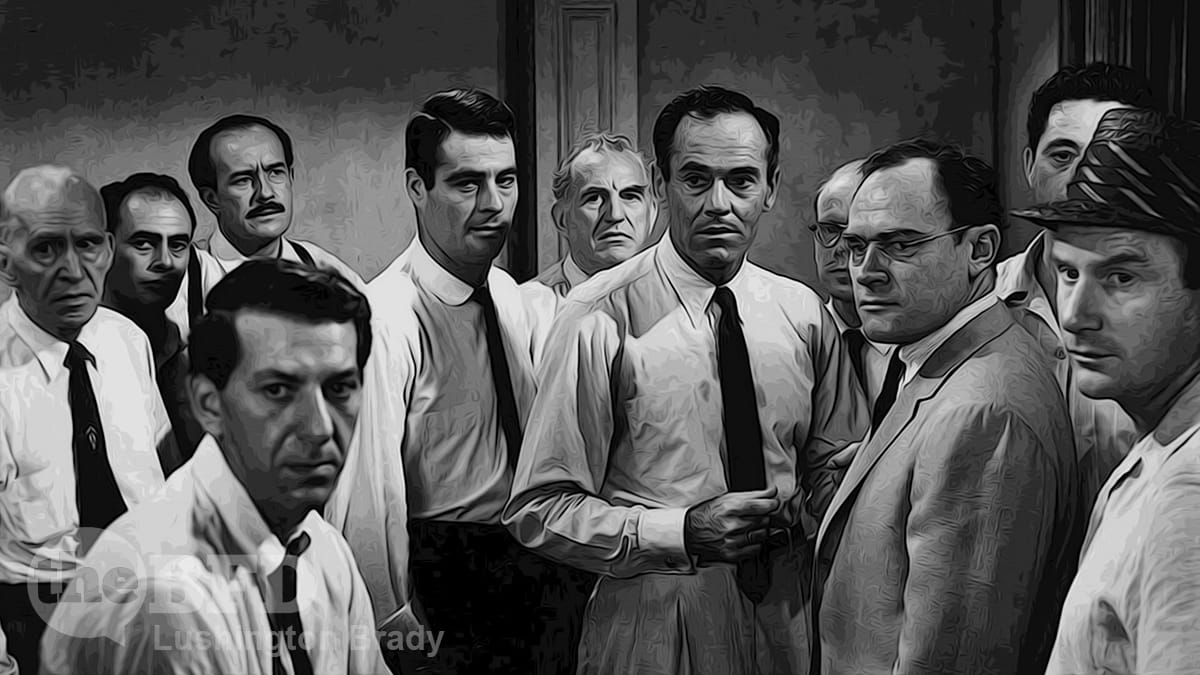Table of Contents
In case you hadn’t got the message yet, the left-elite despise you. Deplorable. They certainly don’t trust you: not to raise your children “correctly”, make the “right” medical choices, or even to vote the way they want.
And they absolutely don’t trust your judgement or commonsense in the courtroom.
Juries are under attack. Earlier this month, France removed juries from most rape trials, despite heavy resistance from the judiciary. All cases involving crimes with maximum sentences of between 15 and 20 years will now be tried by courts of five judges, rather than the previous three judges and six jurors.
Trial by a jury of one’s peers has been a bedrock of the Common Law for centuries, and in some form, in Western law for millennia.
But, like many other previous pillars of our legal system, it is under heavy assault. Invariably, in the name of “fairness” or “protecting the vulnerable”. Increasingly, though, one might be excused that the real reason for such dangerous watering-down of our rights is not fairness, but the growing impatience of elites and lobby groups who aren’t getting the results they want.
Thanks, of course, to those deplorables in the jury room.

Similar measures are being proposed in Scotland. In 2021, the senior Scottish law officer, Lord Advocate Dorothy Bain, suggested that politicians were ‘morally obliged’ to consider judge-led trials in rape cases, in order to deal with a backlog from the Covid pandemic. This followed proposals by a senior Scottish lawyer earlier that year, who argued that more rape cases should be heard by a single judge with no jury. This, Lady Dorrian argued, would ‘fundamentally change and improve the way sexual offences are prosecuted in Scotland’.
By “improve” she means, “get more convictions”. Which, in case you hadn’t noticed, shows a worrying presumption that the accused must be guilty, simply by being accused, rather than presuming innocence.
Proposals are also being made in England and Wales to further complicate already complex rape laws. The Right to Equality campaign group, led by barrister Charlotte Proudman and in partnership with the Good Law Project, has proposed that rape be ‘redefined’ to criminalise ‘unwanted sex’. The group argues that rape should be defined as a ‘crime of inequality’, in which ‘force incorporates multiple inequalities of power – such as age, race, disability, celebrity, caste, sexual orientation, gender identity and sex / gender’.
In other words, judges will be the hovering spectre in every bedroom.
Beneath the academic gibberish is a terrifying proposal. It would place unprecedented power in the hands of judges to regulate intimacy. It would make interracial and other diverse relationships more open to legal intervention.
Rape is undeniably one of the most complex crimes in the courtroom. Not least because they almost always come down to one person’s word against another’s. The insulting assumption of the activists is that ordinary people simply can’t be trusted to hand down reasonable verdicts. In fact, research shows that juries have no bias against accusers. Contrary to the activists’ constant assertions, when rape accusations go to jury trial, they are much more likely than not to result in conviction. Current conviction rates are about 70%.
I wish these campaigners would spend a few days sitting in rape trials. They would see that juries take their role incredibly seriously. And the lawyers involved are obliged to make the process as stress-free for the complainant as possible. There are already strict rules about how lawyers can question the parties, including restrictions on asking about a complainant’s sexual history. Evidence is often pre-recorded, with only the cross-examination proceeding in front of the jury.
This system is far from perfect. But the jury is, and always has been, the most effective element of the trial process.
Spiked Online
The basic principle remains that judgement by 12 members of the public is inherently fairer than judgement by one or even three elites, however qualified they might be.
We throw that principle aside at our peril.









